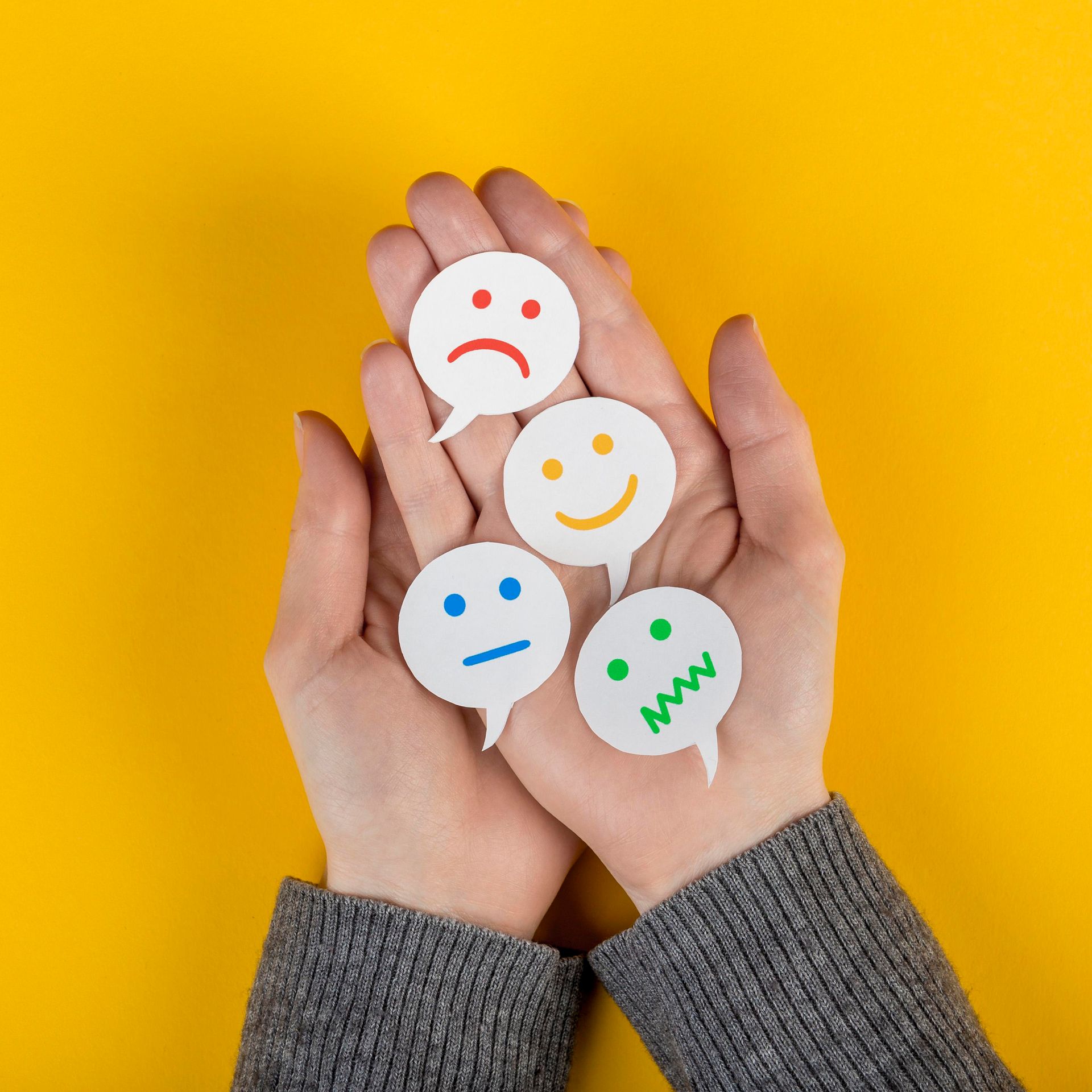What Emotional Safety Means in Therapy and Why It’s Essential for Healing

Table of Contents
- Understanding Emotional Safety in Therapy
- Why Emotional Safety is the Foundation of Real Healing
- How to Know If You Feel Safe (or Unsafe) in Therapy
- How Therapists Build Safe, Supportive Environments
- The Power of Trauma-Informed Therapy
- Building a Trusting and Healthy Therapeutic Relationship
- What to Do When Therapy Doesn’t Feel Emotionally Safe
- Questions to Ask Your Therapist to Protect Your Emotional Well-Being
- Taking the Next Step Toward a Healing Space
Key Takeaways
- Emotional safety allows you to open up, trust, and heal in therapy.
- Without emotional safety, you might hold back or feel judged, slowing your progress.
- A strong therapeutic relationship is built on empathy, respect, and understanding.
- Trauma-informed therapy helps you feel seen and supported, especially if you’ve been hurt before.
- You have the right to feel safe, heard, and validated in every therapy session.
You Deserve a Safe Place to Heal
If you’re reading this, chances are something inside you is asking for help. Maybe you’ve tried therapy before and it didn’t feel right. Maybe you’ve been carrying emotional pain for so long that the idea of opening up to someone—even a professional—feels terrifying.
That fear is valid.
But here’s something you need to know: emotional safety is not just a therapy buzzword. It’s the very ground beneath your feet when you're trying to heal. Without it, therapy can’t do what it's meant to do.
And if you're walking into a therapist's office already hurting, you shouldn't have to work to
earn safety. It should be there from the start.
Understanding Emotional Safety in Therapy
So, what exactly is emotional safety in therapy?
It’s the invisible yet powerful sense that you can show up as your real self—messy, scared, confused, hopeful—and be met with compassion, not criticism. It’s the knowing that you won’t be judged, dismissed, or shamed.
In emotionally safe therapy, your truth is never “too much.” Your feelings are never “too dramatic.” You are never “too broken.”
An emotionally safe therapist:
- Listens without interruption
- Validates your emotions, even the hard ones
- Honors your pace—never pushing before you're ready
- Allows you to
not be okay
- Holds your pain gently, without trying to fix it too quickly
This is especially important if you’ve experienced emotional neglect, betrayal, abuse, or trauma. The last thing you need is to feel unsafe in a space meant for healing.
Why Emotional Safety Is the Foundation of Real Healing
You cannot heal in the same environment that hurt you—and that includes therapy.
For therapy to work, your nervous system needs to relax. But if you feel emotionally unsafe, your body stays in fight, flight, or freeze mode.
That means:
- You censor yourself to avoid judgment
- You withhold painful experiences
- You feel anxious before sessions
- You second-guess your feelings or feel embarrassed after opening up
Without
emotional safety, therapy becomes another place where you feel like you have to perform or protect yourself. Healing stops. But when safety is present, something beautiful happens: walls begin to drop, and real change can begin.
How to Know If You Feel Safe (or Unsafe) in Therapy
Sometimes emotional safety isn’t easy to spot. We may be so used to being guarded that we don’t even realize we’re not truly opening up.
Here are signs that you feel emotionally safe in therapy:
- You leave sessions feeling lighter or more understood
- You can share difficult stories without feeling judged
- You feel your therapist “gets” you—even when you can’t find the words
- You’re allowed to be silent, emotional, or messy
- You feel a growing sense of trust over time
And here are red flags:
- You feel anxious before sessions—not because of what you're processing, but because of the therapist’s vibe
- You sense judgment, dismissiveness, or disconnection
- You feel rushed, misunderstood, or unseen
- Your concerns are minimized or brushed off
- You feel like you're being analyzed instead of
heard
If any of these sound familiar, it may be time to reconsider your current
therapeutic relationship.
How Therapists Build Safe, Supportive Environments
Creating emotional safety isn’t accidental. Skilled therapists work intentionally to make their space safe, welcoming, and attuned to your needs.
Some ways this happens include:
- Setting clear boundaries and confidentiality agreements
- Using gentle language and nonverbal cues (like open posture and eye contact)
- Checking in often about how sessions feel for
you
- Tailoring their approach to your pace and comfort level
- Encouraging autonomy—you get to decide what, when, and how much to share
Therapists trained in trauma-informed therapy are especially adept at creating this kind of space.
The Power of Trauma-Informed Therapy
If you have a history of emotional, physical, or relational trauma, then trauma-informed therapy is essential. This approach is rooted in the understanding that trauma affects how we relate to others, including therapists.
Trauma-informed therapy prioritizes:
- Empowerment over authority
- Choice over pressure
- Collaboration over control
- Curiosity over assumption
A trauma-informed therapist will never pathologize your coping mechanisms or force you into uncomfortable territory. They understand that even trust must be earned.
Building a Trusting and Healthy Therapeutic Relationship
Therapy is a relationship—and like any relationship, trust builds slowly.
The most healing therapeutic relationships are not about quick fixes or advice-giving. They’re about building connection. About being met with warmth and respect. About feeling emotionally held through the chaos of your inner world.
Here are some cornerstones of a solid therapeutic bond:
- Consistency: Your therapist shows up reliably and punctually
- Presence: They are fully “with” you in the session
- Flexibility: They adjust to your emotional needs
- Respect: They honor your story, your identity, your boundaries
This connection is what makes healing not only possible—but sustainable.
What to Do When Therapy Doesn’t Feel Emotionally Safe
It’s hard to admit when therapy isn’t working. But trust your gut.
If you feel uncomfortable more often than comforted, it’s okay to explore other options. You don’t owe anyone your vulnerability—not even a licensed therapist.
Here are some steps you can take:
- Bring it up gently in session. A good therapist will want to know.
- Reflect on specific things that feel unsafe (e.g., tone, pace, lack of empathy).
- Get a second opinion. Other therapists may offer free consults.
- Give yourself permission to leave. Switching therapists is not failure—it’s self-respect.
Questions to Ask Your Therapist to Protect Your Emotional Well-Being
Not sure how to find a therapist who prioritizes emotional safety and uses a trauma-informed therapy approach? These questions can help:
- “What is your approach when a client feels overwhelmed or shut down?”
- “How do you make sure your clients feel safe emotionally?”
- “Have you worked with people who have experienced trauma before?”
- “How do you tailor therapy to individual emotional needs?”
The answers to these questions will tell you more than credentials ever could.
Taking the Next Step Toward a Healing Space
If you’ve made it this far, chances are something deep inside you is calling for more—more safety, more clarity, more healing. You deserve a space where your pain isn’t minimized. Where you don’t have to protect your therapist from your truth. Where healing is more than a goal—it’s a journey you’re truly supported in.
You don’t have to settle for therapy sessions that leave you feeling heavy or unheard. You don’t have to silence your instincts. You deserve therapy that feels like a sanctuary.
At Brian Stalcup MED, we’re here to offer exactly that. A therapeutic space where your emotional safety is not negotiable—it's our starting point.
We invite you to take the next brave step. Whether you're just starting your healing journey or looking to restart with a more emotionally attuned therapist, we’re ready to meet you exactly where you are.
Email us at brianjstalcup@gmail.com, or call 405-921-7012. Your healing matters. Your safety matters.
Brian Stalcup MED is here when you're ready.
Frequently Asked Questions
1. What does emotional safety in therapy mean to us?
We believe emotional safety means creating a space where you can speak freely, feel heard, and know you won’t be judged. It’s the foundation of every session we offer.
2. How does trauma-informed therapy guide our approach?
Our use of trauma-informed therapy means we prioritize your comfort, offer choices, and respect your pace. We never push—we walk alongside you as you heal.
3. Why is emotional safety so important in our work?
Without emotional safety, true healing can’t begin. That’s why we focus on trust, validation, and empathy from the very first session.
4. What makes a therapeutic relationship feel safe?
A strong therapeutic relationship to us means mutual respect, clear boundaries, and open communication. We build trust slowly and intentionally.
5. How do we ensure trauma survivors feel supported?
Through trauma-informed therapy, we create a calm, nonjudgmental environment where trauma survivors feel emotionally safe, seen, and empowered to heal.
